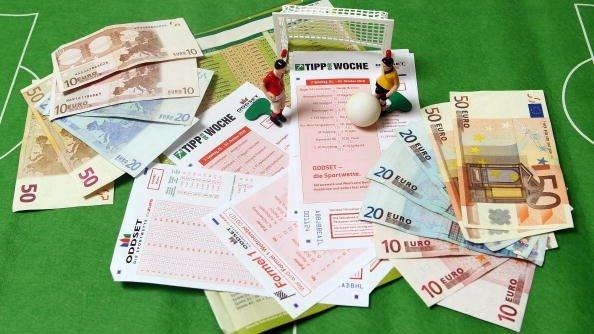Cardiff uni statisticians take on bookies with 'big data'
- Published
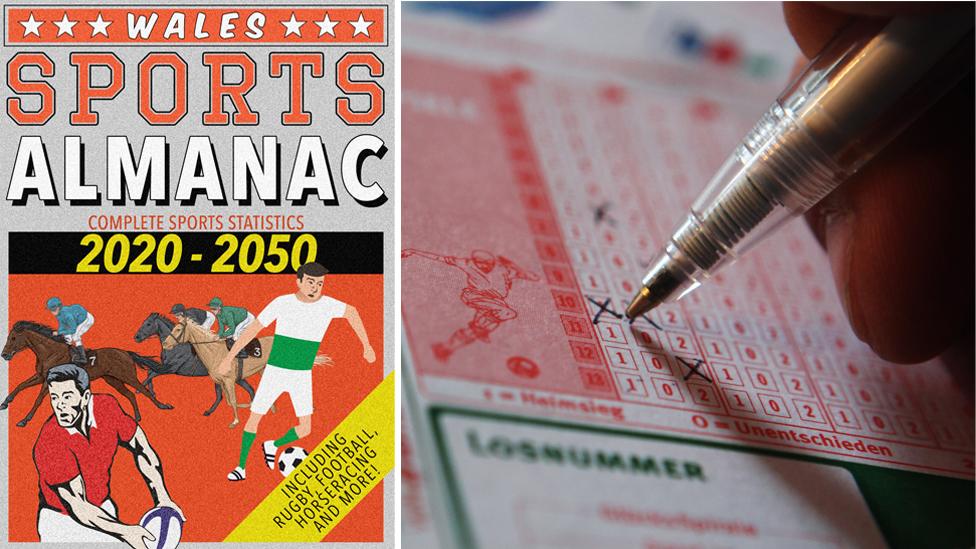
Can big data data help create a guide to sporting events similar to the almanac featured in the Back to the Future films?
It may sound like a gambler's dream but a team of statisticians is working on ways to beat the bookies by predicting sporting events.
The mathematicians at Cardiff University use "big data" collected from thousands of previous results.
The academics and their specially-programmed robots then use their analysis to make bets.
Prof Anatoly Zhigljavsky, of the School of Mathematics, said: "We don't feel it as money. We feel it as a challenge."
Could big data help create a guide to coming sports events similar to the almanac featured in the Back to the Future films?
His team recorded three years of data from 100 football leagues around the world, including results and in-play data, such as the number of goals, yellow cards and red cards in any given game.
The team and their robots analyse the data.
They then compare the odds offered by bookmakers for similar upcoming matches to the odds they calculate are reasonable.
"If the odds are in our favour we put a small bet in," Prof Zhigljavsky said. "And that's how we put in hundreds and hundreds of bets."
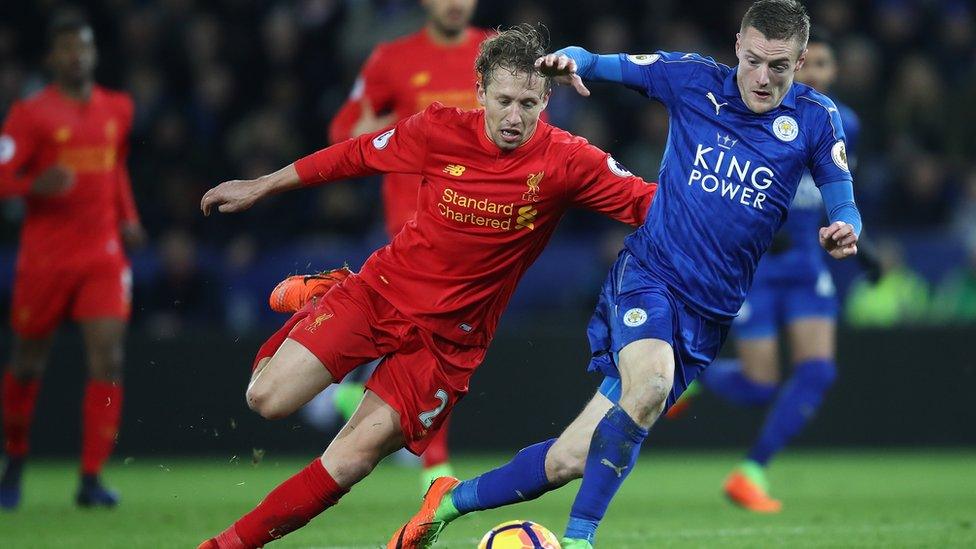
The Cardiff University team bets on leagues across the world, including the English Premier League
Prof Zhigljavsky said the team had one robot which, despite them not tuning it for three years, has made a "small but steady profit".
"It [the profit] is not significant but it's still positive," he explained.
However, for the most part, Prof Zhigljavsky believes current artificial intelligence punters cannot be trusted on their own to make money.
"Some robots are quite successful but most of them are not. Most of them require human intervention.
"We are still looking for the robot that will make big money," he said.
"We know when to play, we know when not to play. We know how to play. Unfortunately, we still don't know how to fully automize good robots."
Prof Zhigljavsky said he and his colleagues also produce strategies more sophisticated than those used by their electronic counterparts.
And it was the nagging sense that their branch of mathematics was under-appreciated that drew them to the challenge.
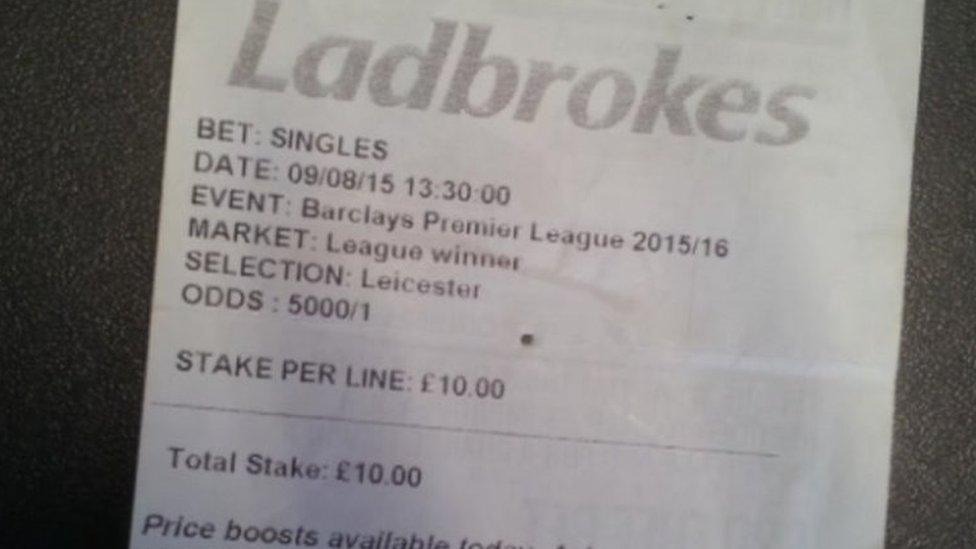
Betting can be an expensive and damaging hobby for some but this flutter won Mandy Clarke £50,000 at the end of last season
"Football betting is an interesting example - nobody asked us to do that but we found there is an infinite source of data, lots of uncertainty, and uncertainty is exactly what we like to deal with - to extract what is very, very difficult to extract."
He said the team had also detected betting scams in the past, such as match fixing, by spotting unusual fluctuations in the odds.
The professor of statistics is keen to point out that the betting work is only a "hobby" at the university, as he and his team carry out research which is much more serious and academically significant.
Discipline
Nonetheless, he admits students enjoy it and staff relish the opportunity to apply their theories to work which is not exclusively theoretical.
Ben Morgan, who is studying gambling odds at the university said: "We've put a few bets on recently. Some have done better than others."
But, while studying the numbers may help, Prof Zhigljavsky insists the level of discipline and work required mean it is no short-circuit to getting rich.
"It looks like if you, at least, don't want to lose money in betting, then you have to apply some time, you need to apply some effort.
"I have a couple of friends who are making decent money [from betting] - they don't need to work, if they don't want to. They work for the moment, but they are thinking of quitting work.
"But they have to spend a serious amount of time to prepare for the proper betting, so nothing is free, unfortunately."

The sports betting industry is believed to be worth £435bn to £625bn
And while Prof Zhigljavsky does not spend the required time necessary to make betting his main source of income, he sees it as a realistic possibility.
"If I retire and I carry on this activity for another five years, I think I will be perfectly capable of supporting myself and my family just with this [betting].
"Of course, I will need to spend more time and energy. But if I still have energy and time, then why not?"
But he is not convinced the bookmakers need to start worrying about mathematicians having a serious impact on their profits for the meantime.
In fact, the statisticians may even prove useful to the betting companies.
"If we start winning on an industrial scale then we would present some danger to betting companies but I don't think we are any danger because our winnings are absolutely negligible.
"Because we are putting on lots of bets they actually may monitor people like us and get some extra information from us," Prof Zhigljavsky said.
- Attribution
- Published3 October 2013
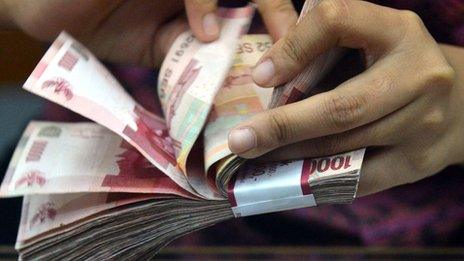
- Attribution
- Published1 August 2014
